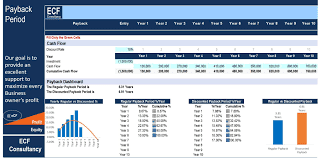Common Startup Business Models
Every Startup needs to find a model on how to operate and how to do business. Sometimes, selecting a business model requires time, trial and error. It is not always guaranteed that one will succeed when it comes to starting up a new business but there are ways to ensure to determine if such a venture will be profitable and feasible in the long run.
The following are startup business models which are commonly used by entrepreneurs these days:
• Software as a Service (SaaS) – Popular business model these days due to the convenience brought by technology as well as the efficiency of its approach which basically hooks customers on board and enticing them not to leave easily. The operation is simply selling a digital product one time as a service and promoting monthly recurring fees.
• Retailing – Not only encompasses the brick and mortar type of business model but also considers wholesales, distributors, and manufactures as related sectors which makes use of the retail business model. It is one of the most common business startup models that entrepreneurs often start with as a startup. The operation is as simple as a retailer purchasing products or units from a distributors, manufacturer, and wholesaler, then proceed to sell the procured products or units to the market.
• Franchising – One doesn’t need to come up with a new business model or idea to start a business. One can also make use of other popular and profitable existing businesses and make a franchise out of it. This type of business model is where one can sell the right to use the business model to others in exchange for a percentage of profit. Therefore, if you want to start a business which you know has been proven to be popular and in demand, then the best approach would be to get a franchise of that business.
• Niche Business – If you want to offer a service or product that is unique or not that common, the niche business model is the right model for you. Its focus is on the needs of a market niche and services it in a way with products and services that larger businesses can’t.
Of course, there are many more business model examples out there that are used for startups and have left a footprint in their respective industries. But choosing the right business model won’t guarantee your success for you still need to build a solid business plan which will help achieve your goals or objectives.
So, if you’re interested and in need of help building a solid business plan for your startup business, you can take a look at the various financial model templates at eFinancialModels, a platform offering industry-specific financial model templates to use as a base to start with or a reference for your own financial plan, created by expert financial modelers. You can also refer to this list of startup business models to know more about different business model examples: Business Model Examples.
The following are startup business models which are commonly used by entrepreneurs these days:
• Software as a Service (SaaS) – Popular business model these days due to the convenience brought by technology as well as the efficiency of its approach which basically hooks customers on board and enticing them not to leave easily. The operation is simply selling a digital product one time as a service and promoting monthly recurring fees.
• Retailing – Not only encompasses the brick and mortar type of business model but also considers wholesales, distributors, and manufactures as related sectors which makes use of the retail business model. It is one of the most common business startup models that entrepreneurs often start with as a startup. The operation is as simple as a retailer purchasing products or units from a distributors, manufacturer, and wholesaler, then proceed to sell the procured products or units to the market.
• Franchising – One doesn’t need to come up with a new business model or idea to start a business. One can also make use of other popular and profitable existing businesses and make a franchise out of it. This type of business model is where one can sell the right to use the business model to others in exchange for a percentage of profit. Therefore, if you want to start a business which you know has been proven to be popular and in demand, then the best approach would be to get a franchise of that business.
• Niche Business – If you want to offer a service or product that is unique or not that common, the niche business model is the right model for you. Its focus is on the needs of a market niche and services it in a way with products and services that larger businesses can’t.
Of course, there are many more business model examples out there that are used for startups and have left a footprint in their respective industries. But choosing the right business model won’t guarantee your success for you still need to build a solid business plan which will help achieve your goals or objectives.
So, if you’re interested and in need of help building a solid business plan for your startup business, you can take a look at the various financial model templates at eFinancialModels, a platform offering industry-specific financial model templates to use as a base to start with or a reference for your own financial plan, created by expert financial modelers. You can also refer to this list of startup business models to know more about different business model examples: Business Model Examples.



Comments
Post a Comment